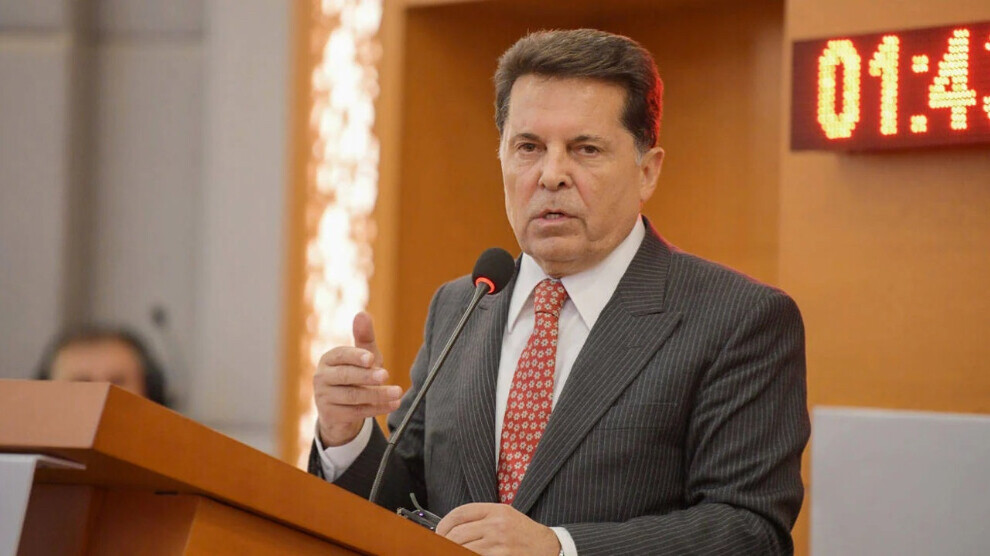Up to 15 years in prison sought for the dismissed mayor of Esenyurt
Ahmet Özer, Esenyurt district mayor dismissed and imprisoned for alleged links to the PKK, faces up to 15 years in prison.
Ahmet Özer, Esenyurt district mayor dismissed and imprisoned for alleged links to the PKK, faces up to 15 years in prison.

Around four months after his arrest, the Istanbul Chief Public Prosecutor is seeking up to15-year prison sentence for the dismissed mayor of Istanbul’s Esenyurt district, Ahmet Özer.
Özer is accused of being a member of an armed “terrorist organization”. The indictment against Özer has been submitted to Istanbul 14th High Criminal Court.
Ahmet Özer was arrested at the end of October and dismissed from his post on charges of allegedly having ties to the Kurdistan Workers' Party (PKK). Since then, he has been held in Marmara Prison in Silivri, which is considered a detention center for opposition figures. The deposed mayor, who is a sociology professor, won the district in the municipal elections on 31 March 2024 with 49.05 percent of the vote.
The opposition views the “city consensus” as decisive for Özer's victory in the vote. This is a pre-election system initiated by the DEM Party in the last local election campaign, on the basis of which joint candidate lists were drawn up with various parties in some cities. Delegates appointed by party members, opinion leaders and civil society organizations took part in the preliminary voting.
According to reports, the public prosecutor's office criminalizes this cooperation between the opposition parties and claims that the “strategy” for this policy was developed by the PKK. The indictment cites the city consensus as evidence of Özer's PKK membership.
The indictment also interprets the mention of Özer in the context of a conversation between HDP MPs and Kurdish leader Abdullah Öcalan, which took place during the dialogue process between 2013 and 2015, as an indication that the CHP politician would act “on instructions” from the PKK. At the time, the conversation, which took place in the presence of state representatives, was about a list of academics whose expertise was sought to find a solution to the Kurdish question. In Özer's case, however, this did not happen. The public prosecutor's office apparently considers the mere mention of his name to be further evidence of PKK membership.